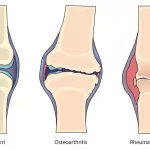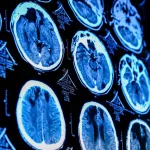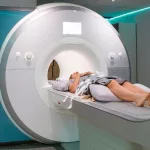Short answer: no, Aricept isn’t an antipsychotic. It belongs to a class called acetylcholinesterase inhibitors and is prescribed to gently lift the memory‑loss fog that comes with Alzheimer’s disease. The confusion often arises because many dementia‑care plans also sprinkle in true antipsychotic medications for agitation or psychosis. Below we’ll untangle the science, the FDA approvals, the safety signals, and the moments when a doctor might add a genuine antipsychotic to the mix. Grab a cup of tea, settle in, and let’s clear things up together.
Quick Answer
Is Aricept an antipsychotic?
In plain language, Aricept (generic name donepezil) is not an antipsychotic drug. It’s an acetylcholinesterase inhibitor that raises levels of the neurotransmitter acetylcholine, which helps brain cells communicate better. Antipsychotics, on the other hand, mainly block dopamine or serotonin pathways to calm hallucinations, delusions, or severe agitation.
Why do people mix them up?
When families first hear “dementia meds,” they often hear a laundry list that includes both Aricept and drugs like risperidone or olanzapine. The overlap in the conversation makes it easy to assume they belong to the same family. Healthline points out that many caregivers learn about “antipsychotic medications” only after a physician adds one to a treatment plan for severe agitation.
Bottom‑line for you
If your loved one has been prescribed Aricept, you’re looking at a medication that aims to improve memory, language, and daily functioning—not to silence psychosis. If a true antipsychotic shows up on the prescription bottle, ask the doctor why it’s needed, what the goals are, and how long it will be used.
How It Works
Acetylcholine’s role in memory
Think of acetylcholine as the brain’s “post‑it notes.” It tags important pieces of information so neurons can retrieve them later. In Alzheimer’s, those notes get washed away faster than they’re written, which is why memory slips away. Aricept steps in as a gentle custodian, slowing the breakdown of acetylcholine and letting the notes linger a little longer.
Mechanism vs. antipsychotics
Antipsychotics are like traffic lights that stop certain signals (mainly dopamine) from flooding the brain. They’re great for reducing hallucinations or severe aggression, but they also come with a heavier side‑effect load. Aricept doesn’t touch those pathways at all; it simply prevents the enzyme acetylcholinesterase from chewing up acetylcholine. The result is a modest boost in cognition without the sedation or movement‑related side effects you see with many antipsychotics.
Evidence from trials
Two large, double‑blind, placebo‑controlled studies showed that patients on Aricept improved on the ADAS‑Cog (Alzheimer’s Disease Assessment Scale‑cognitive) by about 2‑3 points over a year, while placebo groups declined by roughly 5‑6 points. Those numbers might look small, but for a family watching a loved one struggle to find words, even a tiny gain feels monumental.
Approved Uses
Alzheimer’s treatment, not a cure
Aricept is FDA‑approved for mild‑to‑moderate Alzheimer’s disease. It helps with attention, memory, language, and the ability to perform everyday tasks. It does not stop the underlying disease—Alzheimer’s will still progress, but the medication can slow the rate of decline and keep quality of life higher for longer.
What patients notice
Many families report the first signs of benefit around 4‑6 weeks: clearer conversation, a reduced need for reminders, and a calmer mood. One caregiver described it as “seeing a dim light flicker back on in a room that had gone dark.” That metaphor captures the emotional lift that a modest cognitive gain can bring.
Real‑world example
Maria, a 78‑year‑old retired teacher, began Aricept after her diagnosis. Within two months, she could remember her grandson’s name again and even helped bake cookies—a task she hadn’t managed in years. Her husband says the small victories gave them hope to keep engaging in family activities, even as the disease slowly marched forward.
Antipsychotic Meds
When doctors add them
Behavioral symptoms—agitation, aggression, psychosis—affect up to 50 % of people with moderate‑to‑severe Alzheimer’s. When non‑pharmacologic approaches (like music therapy or environmental tweaks) aren’t enough, a psychiatrist may prescribe an antipsychotic such as brexpiprazole (Rexulti) or risperidone. Drugs.com notes that these drugs target dopamine pathways to calm severe agitation.
Risks of antipsychotics in dementia
The FDA has issued a black‑box warning that antipsychotics can increase the risk of stroke, heart attack, and even death in older adults with dementia. A 2024 systematic review found that the mortality risk jumps by about 1.5‑fold compared with placebo. That’s why the mantra in geriatric psychiatry is “use the lowest effective dose for the shortest possible time.”
Comparison Table
| Drug | Class | Main Target | Typical Alzheimer’s Use | Key Side Effects |
|---|---|---|---|---|
| Aricept (donepezil) | Acetylcholinesterase inhibitor | Acetylcholinesterase enzyme | Improves cognition & daily function | Nausea, insomnia, bradycardia |
| Rexulti (brexpiprazole) | Atypical antipsychotic | Dopamine & serotonin receptors | Reduces agitation in dementia | Weight gain, sedation, increased stroke risk |
Professional guidance
The American Psychiatric Association recommends that antipsychotics be prescribed only after thorough assessment, clear documentation of behavioral symptoms, and trial of non‑drug strategies. Regular review every 30 days is essential to decide whether the medication can be tapered.
Risks & Safety
Common Aricept side effects
Most people experience mild issues: nausea, vomiting, loss of appetite, or occasional insomnia. These often ease after a few weeks as the body adjusts. Taking the pill with food, staying hydrated, and splitting the dose (if prescribed) can help.
Serious adverse events
Rare but important warnings include:
- Bradycardia (slow heart rate) – watch for dizziness or fainting.
- Gastrointestinal bleeding – especially if you’re on NSAIDs.
- Seizures – extremely uncommon, but a signal to stop the medication immediately.
If any of these occur, call your doctor right away.
Drug interactions
Donepezil is metabolized by the liver enzyme CYP2D6. Medications that inhibit this enzyme (like fluoxetine or paroxetine) can raise donepezil levels, increasing side‑effect risk. Conversely, strong inducers (such as carbamazepine) may lower its effectiveness. A quick check with your pharmacist can prevent unexpected interactions.
Balancing benefits vs. risks
Ask yourself these three questions before continuing:
- Do I notice any cognitive or functional improvement?
- Are side effects tolerable, or do they outweigh the benefits?
- Is there a clear plan for monitoring and reassessment?
If the answer to #1 is “yes” and #2 is “mostly yes,” you’re likely on the right track. If not, discuss dose adjustments or a trial discontinuation with your provider.
Bottom Line
Takeaway checklist
- Aricept = acetylcholinesterase inhibitor → helps cognition, not an antipsychotic.
- Antipsychotics may be added only for severe behavioral symptoms and carry higher risks.
- Watch for common side effects (nausea, insomnia) and serious warnings (bradycardia, bleeding).
- Review drug interactions, especially with CYP2D6 inhibitors.
- Regularly reassess benefits with your doctor – aim for the lowest effective dose.
Next steps for you
Whether you’re a caregiver, a patient, or simply a curious reader, the most empowering thing you can do is stay informed and keep an open dialogue with your healthcare team. Bring up any new symptoms, ask about the purpose of each medication, and never hesitate to request a medication review. Remember, you’re not alone on this journey – millions of families are navigating the same maze, and sharing experiences can make the road a little smoother.
What’s been your experience with Aricept or other dementia medications? Feel free to share your story in the comments; together we can build a community of support and knowledge.




















Leave a Reply
You must be logged in to post a comment.